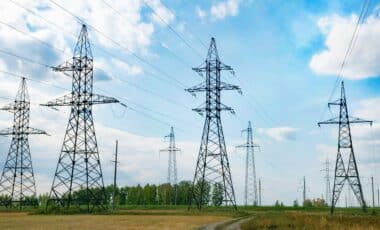The Impact of Taxes on Energy Bills
Martin Lewis emphasizes that energy taxes, particularly consumption taxes, contribute substantially to rising energy costs. If these taxes are not adjusted or reduced, households could face even higher bills. He has described standing charges as a “£388-a-year poll tax on energy bills,” criticizing their impact on low-energy users. Under Ofgem’s price cap, standing charges have seen a dramatic 43 per cent increase since 2019. These fixed charges are a burden on households that consume less energy, and they have come under increasing scrutiny due to their regressive nature.
- £388-a-year poll tax on energy bills
- 43% increase in standing charges since 2019 under Ofgem’s price cap
- Households on standard variable tariffs paying by direct debit are currently charged 60.99p per day for electricity and 31.66p for gas.
- These rates will decrease slightly from January 1, with electricity standing charges falling to 60.97p daily and gas to 31.65p.
Despite the slight reduction expected in January, the standing charges are still 10 per cent below the price cap, leading to frustration among many consumers. Martin Lewis has argued that these standing charges disproportionately affect vulnerable groups, particularly those with low energy usage, such as single-person households or energy-efficient homes.
The Balance Between Energy Tariff Regulation and Market Freedom
Although energy tariffs are regulated, they can still fluctuate due to supply and demand. Lewis advises consumers to compare tariffs and avoid accepting automatic increases when contracts expire, urging them to find better deals. While Ofgem’s price cap aims to keep energy prices within reasonable bounds, it doesn’t directly tackle the fairness of standing charges.
- Compare offers : Avoid default tariffs at the end of a contract.
- Market fluctuations : Prices depend on supply and demand, making it important to shop around for the best deal.
Consumers need to stay proactive in finding the best deals, as tariff changes can significantly impact household budgets.
Practical Tips to Lower Bills
Lewis offers several practical strategies for reducing energy consumption and lowering bills. Key suggestions include using energy-efficient appliances, installing smart thermostats, and improving home insulation. By managing their consumption better, households can mitigate some financial pressure created by rising energy prices.
- Optimise consumption : Choose energy-efficient appliances and manage heating.
- Invest in energy-saving measures : Upgrade insulation and use smart controls.
These tips aim to help reduce overall energy consumption, which can ultimately result in lower monthly bills. However, the effectiveness of these measures is limited if the structure of energy tariffs, particularly standing charges, remains unfairly regressive.
The Role of Government and Financial Aid
Lewis stresses the importance of government intervention, particularly financial aid and targeted tax reductions, to help vulnerable households cope with rising energy costs. These measures must be more accessible and better distributed. Programs like the Warm Home Discount provide essential support to qualifying households, offering rebates on energy bills. This program is vital for vulnerable consumers, especially during periods of high energy prices.
- Warm Home Discount: A financial rebate to help reduce energy bills.
- Targeted support: Aimed at assisting low-income households with high energy costs.
The Warm Home Discount helps millions of low-income households by providing a £150 rebate on energy bills, offering crucial financial relief during colder months.
Energy Firms to Offer Tariffs Without Standing Charges
To address growing consumer frustration, energy firms will soon be required to offer tariffs without standing charges, alongside existing plans. This change, expected to take effect by next winter, is designed to provide more choice and reduce energy debt. Tim Jarvis, Director General of Markets at Ofgem, said:
“Many people feel very strongly that standing charges are unfair and prevent them from being able to manage their bills effectively.” Tim Jarvis.
By eliminating standing charges, Ofgem aims to give consumers more flexibility, particularly those with lower energy usage. When combined with programs like the Warm Home Discount, these changes could significantly assist vulnerable households.










I wonder why it has increased 3x amount pre covid…
Why is price 3x higher than pre covid.
Consumers are in fact paying twice once for energy and secondly for the maintenance of the equipment that carries the energy to the consumer. This should be maintained by the companies. These energy companies charge far too much. They should be paying for the upkeep of equipment not the consumer